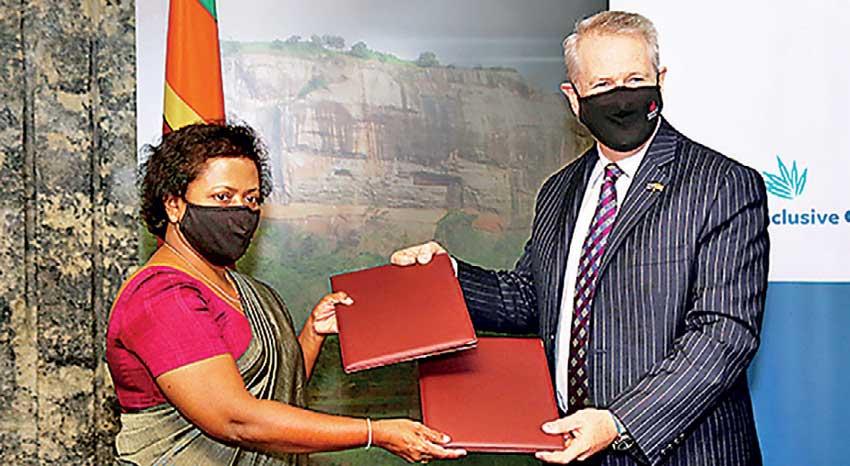Reply To:
Name - Reply Comment

From left: Skills Development, Vocational Education, Research and Innovation State Ministry Secretary Deepa Liyanage and Australian High Commissioner to Sri Lanka David Holly
Sri Lanka and Australia signed a cooperation agreement to continue to improve inclusive growth outcomes in the tourism and hospitality industries through innovative skill development and system strengthening.
The signing of the agreement coincides with the 75th anniversary of official diplomatic relations between Sri Lanka and Australia.
Skills Development, Vocational Education, Research and Innovation State Ministry Secretary Deepa Liyanage and Australian High Commissioner to Sri Lanka David Holly signed the agreement on behalf of the two countries. The agreement builds on previous cooperation and expands support for the implementation of the Decade of Skills Development 2020-2030. It promotes better skills and better jobs.
The Skills for Inclusive Growth Programme (S4IG) is a bilateral initiative of the Australian aid programme developed in partnership with the Skills Development, Vocational Education, Research and Innovation State Ministry. The programme supports the development of quality skills needed to support sustainable and inclusive growth across Sri Lanka’s tourism and hospitality sectors.
Former Skills Development, Vocational Education, Research and Innovation State Minister Dr. Seetha Arambepola said in addition to an expanded geographic reach of the programme and an increased inclusion and gender equality focus, the programme will contribute towards the development and implementation of policy in collaboration with government, industry and training providers. Holly said inclusive vocational education in the hospitality sector is a priority in Sri Lanka and Australia is pleased to continue this bilateral partnership in support of this critical area of economic growth.
The objectives of S4IG are strengthen the enabling environment, specifically national and sub-national governance related to the policy, planning and coordination across skill development to implement new models that address local skills constraints ensuring training delivers what employers and government requires, support demand for inclusive skill development through improved employment outcomes and MSME business revenues, support the strengthening of the supply and relevance of skills.
This enables the implementation of flexibly delivered, inclusive skills training relevant to both individual employment outcomes and enterprise growth.